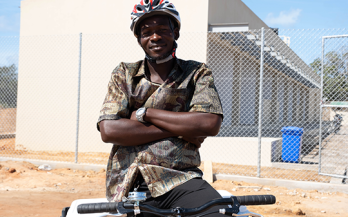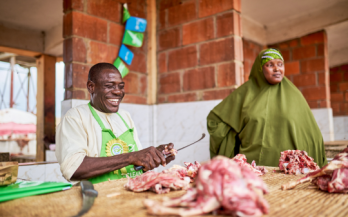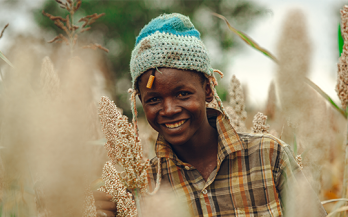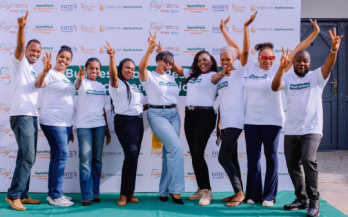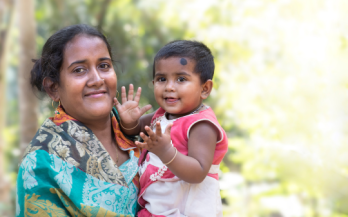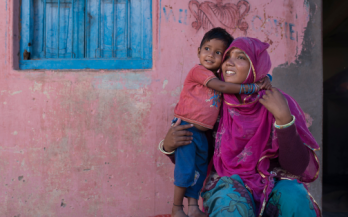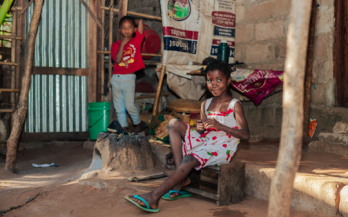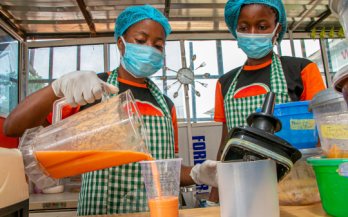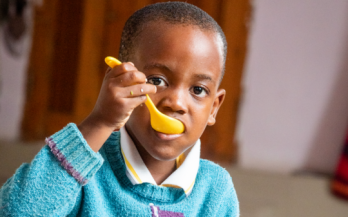One of the biggest challenges street vendors face in Pemba and other parts of Mozambique, is having to travel long distances by foot, reaching more customers. NutriBike is an intervention to solve the storage challenges faced by street vendors. It provides street vendors suitable equipment for preserving and transporting their products maintaining quality, as well as enabling them to cover longer distances and faster.
In a world where digital footprints deeply influence consumer behaviour, the integrity of online reviews is paramount. Recognising the challenges and opportunities presented by user-generated content (UGC), the Center for Indonesian Policy Studies (CIPS), supported by the Global Alliance for Improved Nutrition (GAIN), hosted a webinar in February 2024 focused on the implications of UGC for consumer protection in Indonesia. Complementing this discussion, a detailed policy paper, "Understanding the Landscape of Online Reviews in Indonesia from the Perspectives of Platforms and Consumers", has been launched to provide comprehensive analysis and actionable recommendations.
We expect to be eating peanuts, not extreme amounts of aflatoxins, and chicken but not E. coli. We expect that our salads are washed with clean water, and that the person who prepared the salad first washed their hands. We cannot, however, always assume the expected and thus need to be ready for the unexpected. Unexpected events can take the form of natural disasters, such as earthquakes or floods. They might also come from power cuts or amid sudden political change. Such events can disrupt food availability, accessibility and safety, leaving us exposed to increased levels of unsafe food.
All around the world, countries have recognised their food systems need to change, for the health of people and planet. From a national political perspective, this transformative journey hinges on robust government policy frameworks. Government can and must lead in changing the landscape to banish malnutrition and boost healthy diets. The Kenyan government’s ongoing review of the National Food and Nutrition Security Policy exemplifies its commitment to doing just that.
Consuming a healthy diet is vital for people’s well-being – to live well, grow, and stay active. Nigeria’s vibrant food systems have the critical job of nourishing Africa’s largest nation – a growing and youthful population that needs to be well-fed to meet its potential.
Every year, the voices and discourses on gender equality and women’s rights become loudest around International Women’s Day (March 8th). The rest of the year, women’s voices are seldom heard and considered, especially in corridors of power. Men and women have distinct needs, and there are intersecting vulnerabilities such as poverty levels, ethnic affiliation, age, and disabilities which further limit women’s voices. However, the voices of women must be systematically and consistently included in all conversations, at every stage, and on all topics, especially when it comes to policies.
In March, GAIN attended the 68th Commission on the Status of Women (CSW), an annual event held at the UN Headquarters in New York that brings together stakeholders from all over the world to discuss the state of gender equality and women’s empowerment, resulting in Agreed Conclusions.
“Be the voice of the children” - that was a key messages of a panel discussion held at the 2024 Sankalp Africa Summit on a sunny morning in Nairobi. It focused on how investors and those who work with them can adapt their approaches to better support children’s nutrition.
Among the five panellists — representing GAIN, the World Food Programme, UNICEF, Save the Children, and a local enterprise, Shalem Investment Limited — the motivation for doing this was clear. Children are the future, comprising nearly half of the African population at present and growing fast — expected to reach 1 billion by 2055. They thus have the potential to accelerate development not only in Africa but worldwide. But that potential is currently limited by malnutrition.
Since most people get a large portion of their food from the private sector, private-sector companies can play a key role in improving nutrition by bringing more safe and nutritious products to market, in forms that are appealing and affordable to consumers. This is ever more important in Nigeria today, where annual food inflation in December 2023 reached 28% - putting healthy diets beyond the reach of many lower-income consumers.
Around 130’000 school children in Tanzania are benefiting from eating fortified nutrient-dense meals through an initiative led by the Global Alliance of Improved Nutrition (GAIN) to help address the prevalence of chronic malnutrition in the countryWith a population of 64 million, Tanzania suffers from high rates of micronutrient deficiencies with one-third of children deficient in iron and vitamin A. Lack in such micronutrients for teenagers and young adults could impair their growth, learning capacity and development, and put them at risk of non-communicable diseases with consequential impact in later life.
